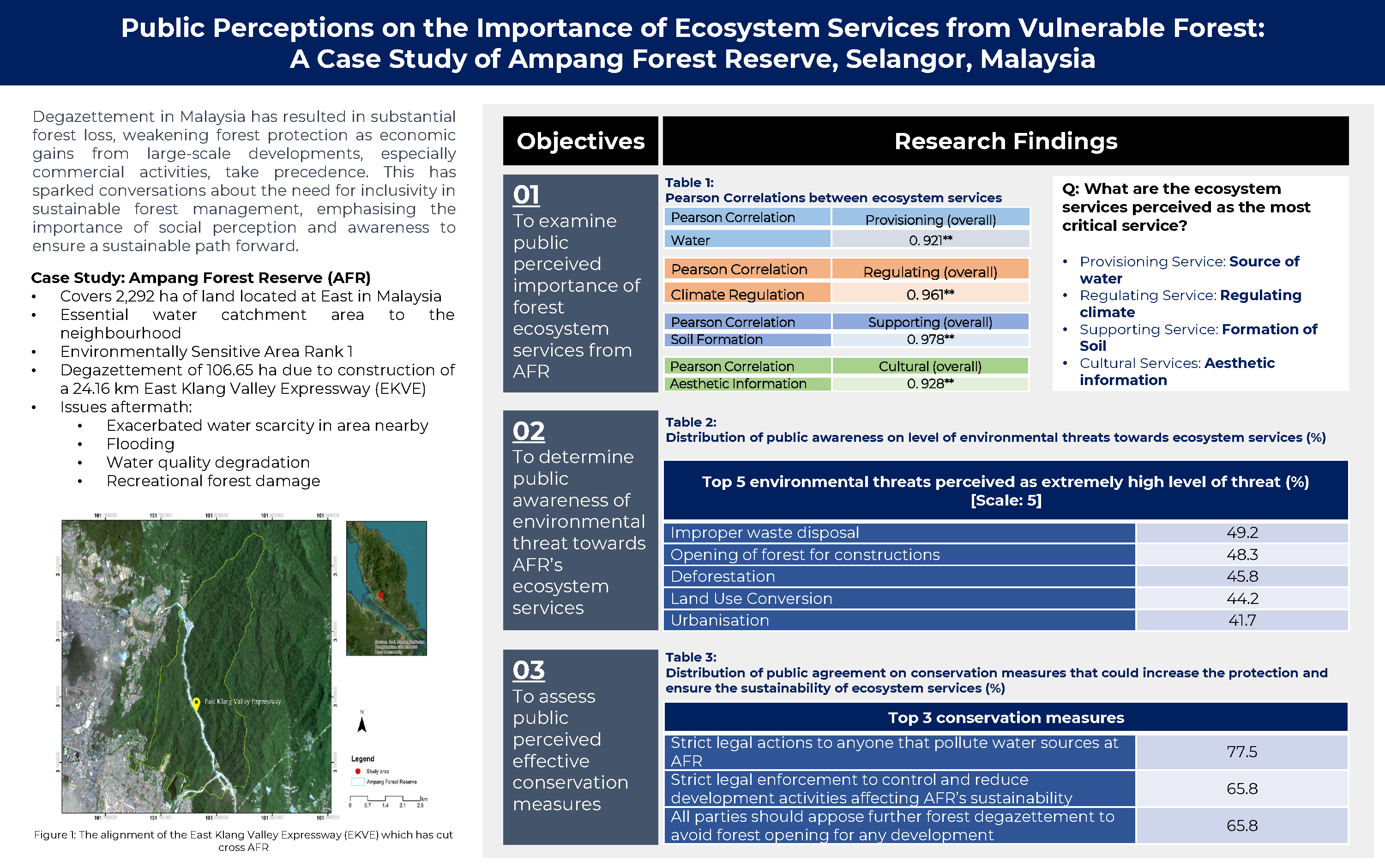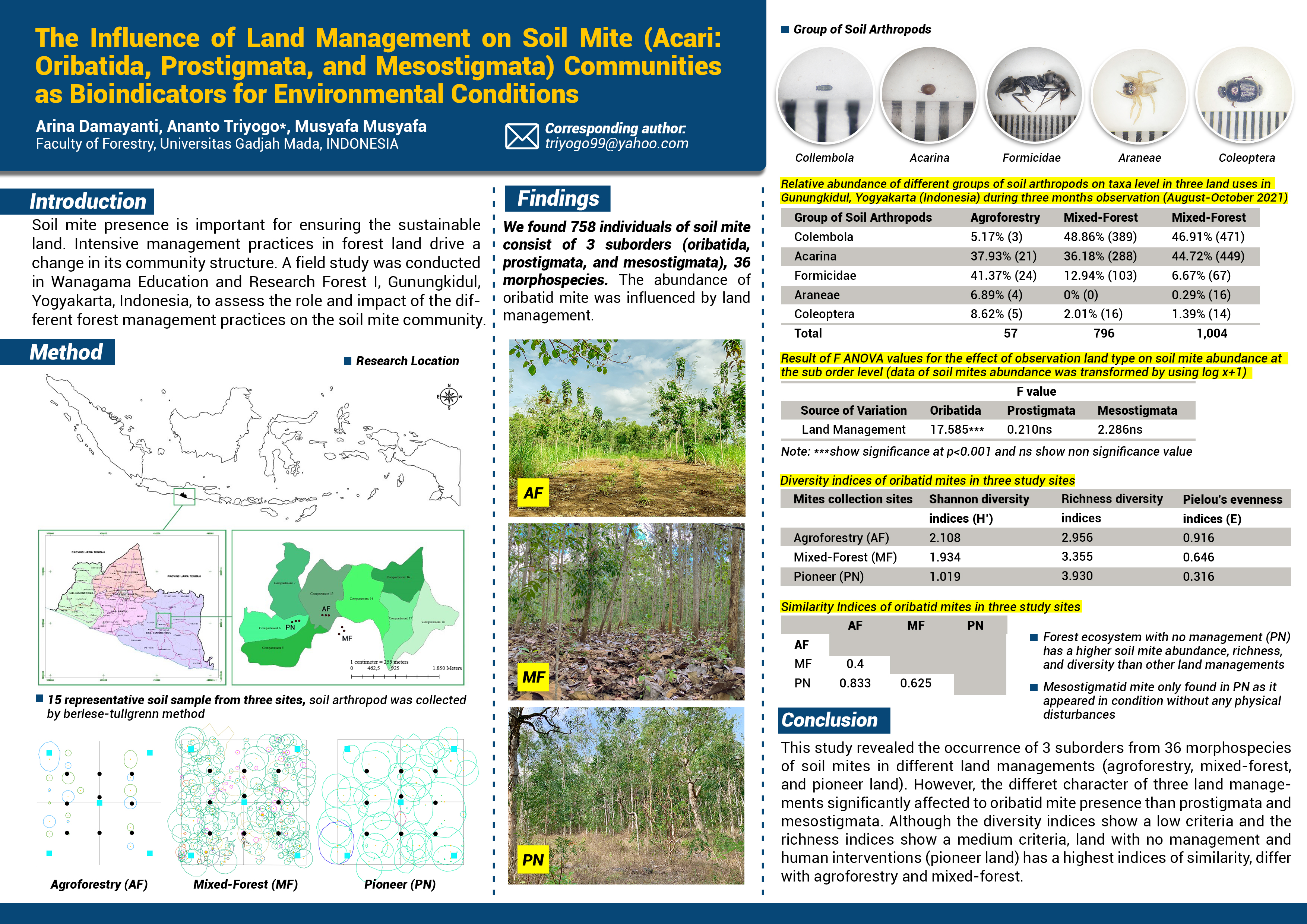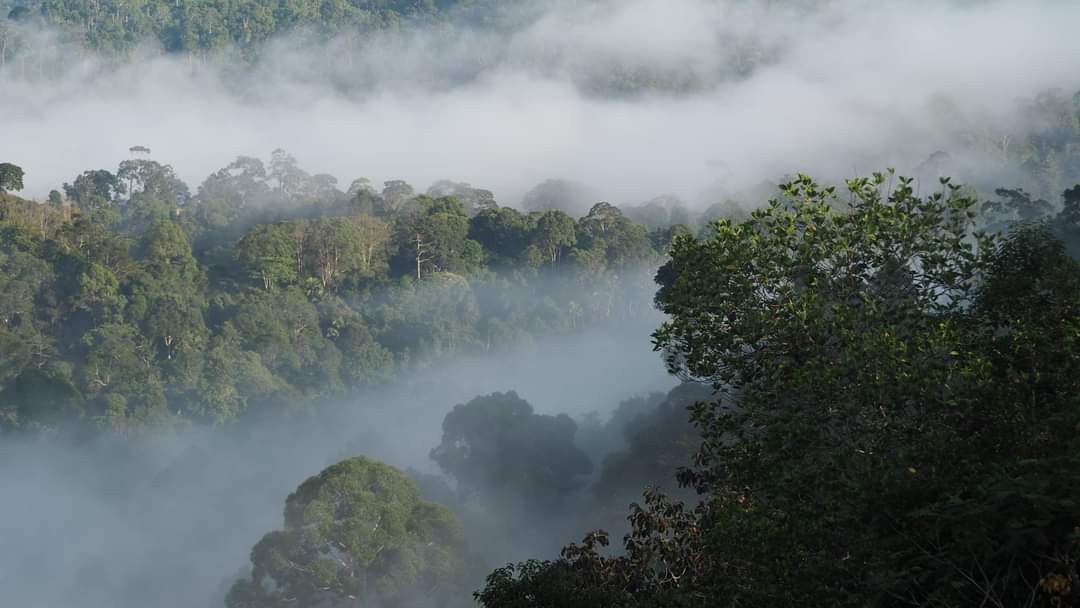Autopoetic Dynamics of the Illegal Logging System in Papua Forest
Abstract
Illegal logging in Papua's forest areas has been a cause of unresolved degradation or deforestation and has developed into a complex problem. This study intends to elaborate on the complex dynamics of illegal logging in Papua, Indonesia, using Niklas Luhmann's Social System theory. The findings of this study are expected to provide a better understanding of the complexities of illegal logging and to encourage stakeholders to respond with more appropriate decisions and policies in accordance with their respective roles and authorities. The results of the research show that illegal logging in Papua is a social system that is formed from a simplification of the meaning of forests by actors who are purely economic-oriented. In facing the pressure from efforts to eradicate this system, the system has been reproducing in an autopoietic manner through differentiation to penetrate all other social systems pointed toward handling illegal logging and sustainable forest management, especially the law enforcement system and the customary forest community system. The ability of autopoietic to reproduce makes this system very flexible and cannot be handled by a rigid and bureaucratic system for dealing with illegal logging. It is suggested that the system for dealing with illegal logging must also be transformed into one of an autopoietic nature through collaborative management.
References
Agranoff, R. & McGuire, M. (2003). Collaborative public management: The strategies for local goverments. Washington, D.C.: Georgetown University Press.
Ali, M. (2014). Educational research methodology and applications. Jakarta: Bumi Aksara.
Ansell, C., & Gash, A. (2008). Collaborative governance in theory and practice. Journal of Public Administration Research and Theory, 8, 543–571. https://doi.org/10.1093/jopart/mum032
Auriga Nusantara, Jerat Papua, Lembaga Studi & Advokasi Masyarakat ELSAM. (2018). Half-Hearted Recognition: A Study on Customary Forest Concession License in Papua. Jakarta. https://auriga.or.id/report/download/en/report/23/half_hearted_recognition_on_customary_forest_concession_license_papua_en.pdf
Baharinawati, W. H., El-Halim, R. M., & Setiadi, A. (2011). Kajian efektivitas sistem silvikultur TPTI terhadap kelestarian produksi hutan alam lahan kering di IUPHHK PT. Mamberamo Alas Mandiri Kabupaten Mamberamo Raya dan PT. Tunas Timber Lestari Kabupaten Boven Digoel Provinsi Papua. Manokwari: Balai Penelitian Kehutanan Manokwari.
Barri, M. F., Condro, A. A., Apriani, I., Cahyono, E., Prawardani, D. D., Hamdani, A., …, & Situmorang, N. (2019). Bioregion of Papua: Forests and people. “Results of a baseline study on forests and humans in the bioregion of Papua”. Bogor: Forest Watch Indonesia.
Biswas, S., & Pal, S. (2021). Tribal land rights: A situational analysis in the context of West Bengal. Journal of Land and Rural Studies, 9(1), 193–209. https://doi.org/10.1177/2321024920968335
Bianchi, C., Nasi, G., & Rivenbark, W. C. (2021). Implementing collaborative governance: Models, experiences, and challenges. Public Management Review, 23(11), 1581–1589. https://doi/org/10.1080/14719037.2021.1878777
Deda, A. J. & S. S. Mofu. (2014). Customary law communities and customary rights in West Papua Province as indigenous Papuans in terms of customs and culture; A contemporary ethnographic study. Journal of Public Administration, 11(2), 11–22.
Ditjen Penegakan Hukum. (2019). Laporan satuan tugas penyelamatan sumber daya alam Papua tahun 2019 bersama KPK-KLHK-Kejagung-Pemda-Polri. Jakarta: Direktorat Jenderal Penegakan Hukum Lingkungan Hidup dan Kehutanan.
Eddyono, S. W. (2017). From 'tracking the logs' to 'tracking the money' application of anti-money laundering crime of forest conversion in the case of Adelin Lis, Marthen Renouw, and Labora Sitorus. Jakarta: Institute for Criminal Justice Reform.
Emerson, K., & Nabatchi, T. (2015). Evaluating the productivity of collaborative governance regimes: A performance matrix. Public Performance & Management Review, 38, 717–747.
[FWI] Forest Watch Indonesia. (2019, January 30). Deforestasi dari masa ke masa di Papua (Papua, Papua Barat, dan Kepulauan Aru). https://fwi.or.id/deforestasi-dari-masa-ke-masa-di-tanah-papua/
Goldsmith, S., & Eggers, W. D. (2004). Governing by network. Washington DC: Brookings Institusion Press.
Hellström, E. (2001). Conflict cultures: Qualitative comparative analysis of environmental conflicts in forestry. Silva Fennica Monographs, 2, 2–84.
Hidayat, H. (2007). Dynamics of illegal logging from the Soeharto regime to regional autonomy. Jurnal Kependudukan Indonesia, 2(2), 75–98. https://doi.org/10.14203/jki.v2i2.149
Hoare, A. (2015). Tackling illegal logging and the related trade: What progress and where next?. Chatham House Report | Executive Summary. https://www.chathamhouse.org/sites/default/files/field/field_document/20150715Illegal LoggingHoareSummary.pdf
[EIA] Environmental Investigation Agency. (2021). Criminal neglect: Failings in enforcement undermine efforts to stop illegal loggin in Indonesia. Environmental Investigation Agency and Kaoem Telapak. https://eia-international.org/report/criminal-neglect-failings-in-enforcement-undermine-efforts-to-stop-illegal-logging-in-indonesia/
Kadir, A. (2017). Seeing Indonesia from the window of the land of Papua: Diversity in the Knit of Melanesian Culture. Walisongo Sociology Journal, 1(2), 225–246. https://doi.org/10.21580/jsw.2017.1.2.2034
Kleinschmit, D., Mansourian, S., Wildburger, C. & Purret, A. (Eds.). (2016). Illegal logging and related timber trade–Dimensions, drivers, impacts and responses (A global scientific rapid response assessment report). IUFRO World Series 35. Vienna: International Union of Forest Research Organizations (IUFRO).
Koalisi Anti Mafia Hutan. (2017, January 19). Siaran pers koalisi antimafia hutan: Aparat penegak hukum harus berani jerat korporasi. https://antikorupsi.org/id/article/siaran-pers-koalisi-anti-mafia-hutan-aparat-penegak-hukum-harus-berani-jerat-korporasi
Lampe, V. K. (2016). Organized crime: Analyzing illegal activities, criminal structure, and extra-legal governance. California: Sage Publication. https://doi.org/10.4135/9781506305110
Luhmann, N. (1989). Ecological communication. Chigago: The University of Chicago Press.
Luhmann, N. (1995). Social systems (J. Bednarz, Jr. & D. Baecker, Trans.). California: Stanford University Press.
Lekitoo, H. Y. (2020, May 13). Food security of community (Papua) with sustainable natural resources [Webinar presentation]. Forum of USAID Lestasi Joint: Learn From Indigenous People of Papua, Improve Harmony with Nature.
Mansoben, J. R. (2003). Konservasi sumber daya alam Papua ditinjau dari aspek budaya. Jurnal Antropologi Papua, 2(4), 1–11.
Maryudi, A. (2016). Choosing timber legality verification as a policy instrument to combat illegal logging in Indonesia. Forest Policy and Economics, 68, 99–104. https://doi.org/10.1016/j.forpol.2015.10.010
Maryudi, A., Suprapto, E., & Iswari, P. (2014). Menunggu godot? Sistem verifikasi legalitas kayu (SVLK) untuk memperbaiki sistem kelembagaan dan tata kelola kehutanan Indonesia (Kasus hutan rakyat dan industri kecil di Klaten, Jawa Tengah). Dewan Kehutanan Nasional.
Maturana, H., & Varela, F. (1980). Autopoiesis and cognition: The realization of the living. Dordrecht: D. Reidel Publishing Company.
Nadilla, S. (2019). Konsolidasi SDM hukum nasional melalui pendekatan teori sistem hukum Luhmann. In U. N. Sosiawan, N. Apriansyah, Y. Ernis, Yulianto, N. V. Ariani, Firdaus, …, & E. N. Kristiyanto (Eds.), Prosiding pemikiran kritis dan strategi pembaruan hukum. Seri 2 Nilai penting SDM hukum dalam pembangungan hukum nasional (pp 249–266). Balitbangkumham Press.
Nugroho, B., Buchori, D., Iriyani, S., & Setiajiati, F. (2022). Efektivitas penerapan SVLK pada berbagai tipe alas hak. Policy Brief Pertanian, Kelautan, dan Biosains Tropika, 4(3). https://doi.org/10.29244/Agro-Maritim.v4.i3.12
Nurrochmat, D. R, Hasan, M. F., Suharjito, D., Budiaman, A., Hadianto, A., Ekayani, M., …, & Ryandi, E. D. (2010). Forestry political economy: Exposing the myths and facts of forest management. Jakarta: Institute for Development of Economics and Finance.
Koalisi Penyelamatan Hutan Papua. (2015). Laporan: Kejahatan kehutanan dan monopoli bisnis kehutanan di Papua Barat.
Parsch, C., Wagner, B., Pangau-Adam, M., Nitschke, C., Kreft, H., & Schrader, J. (2022). Papua at the crossroads: A plea for systematic conservation planning in one of the largest remaining areas of tropical rainforest. Frontiers in Forests and Global Change, 5, 763131. https://doi.org/10.3389/ffgc.2022.763131
Patton, M. (1990). Qualitative evaluation and research methods. Beverly Hills, CA: Sage.
Purnomo, H., Hadjib, A., Saleh, M. B., Kuncahyo, B., Rusolono, T., Prihanto, B., …, & Haeruman, H. (2013, August 20). Pengelolaan hutan berbasis ekosistem–Suatu tinjauan teori, fakta, dan implementasi [Seminar presentation]. Diskusi Pengelolaan Hutan Berbasis Ekosistem sebagai Pendekatan untuk Pengelolaan Hutan Indonesia dalam Paradigma Kehutanan Indonesia Baru.
Rahardjo, S. (2006). Law in the universe of order: Law science doctoral program student reading, Diponegoro University. Jakarta: UKI Press Publisher.
Kuswandi, R., Sadono, R., Supriyatno, N., & Marsono, D. (2015). Model pengelolaan hasil hutan kayu oleh masyarakat adat: Studi kasus pemilik hak ulayat di Kabupaten Teluk Bintuni. Jurnal Kehutanan Papuasia, 1(1), 11–17.
Ritzer, G., & Goodman, D. J. (2008). Modern sociological theory. Jakarta: Kencana Predana Media Group.
Rosenbaum, K. L. (2004). Illegal acts in forestry: Definitions process–Clarifying the definition of illegal logging. Proceedings FAO advisory committee on paper and wood products forty-fifth session (Item 6). FAO. https://www.fao.org/3/j3609e/j3609e10.htm#P1654_114057
Scott, J. (2012). Teori sosial: Masalah-masalah pokok dalam sosiologi. Yogyakarta: Pustaka Pelajar.
Setianingsih, B. (2009). Illegal logging eradication policy for protection of forest resources in Indonesia [thesis]. Bogor: IPB University.
Siburian, R. (2018). Access and management of forest resources in local communities in Manokwari District. Journal of Society and Culture, 20(3), 297–311. https://doi.org/10.14203/jmb.v20i3.727
Situmorang, N. G., & Susilowati, I. F. (2020). Juridical analysis of arrangements for business permits for the utilization of timber forest products by customary law communities (IUPHHK-MHA) in Papua. Novum: Jurnal of Law, 7(4), 44–55.
Song, M. & Zhang, Y. (2018). Research on the relationship between geographical factors, sports and culture. Advances in Physical Education, 8(1), 66–70. https://doi.org/10.4236/ape.2018.81008
Suarga, R. (2005). Pemberantasan illegal logging, optimisme di tengah praktik premanisme global. Banten: Wana Aksara.
Syawaludin, M. (2017). Islam dan kesejahteraan masyarakat: Siasat usaha pedagang kaki lima (PKL) dengan pemanfaatan hubungan komunitas PKL muslim Pasar Suak Bato 26 Ilir di Palembang. Palembang: Rafah Press.
Tacconi, L., Obidzinki, K., & Agung, F. (2004). Learning lessons to promote forest certification and control illegal logging in Indonesia. Bogor: Center for International Forestry Research (CIFOR).
Tacconi, L., Rodrigues, R. J., & Maryudi, A., (2019). Law enforcement and deforestation: Lessons for Indonesia from Brazil. Forest Policy and Economics, 108, 101943. https://doi.org/10.1016/j.forpol.2019.05.029
Takamuli, Y. (2018). Pelaksanaan penegakan hukum lingkungan dalam tindak pidana kehutanan di Polda Papua [dissertation]. Makassar: Universitas Hasanuddin.
Telapak & [EIA] Environment Investigation Agency. (2005). The last frontier: Illegal logging in Papua and China’s massive timber theft. https://eia-international.org/wp-content/uploads/The-Last-Frontier.pdf
Tim Badan Penelitian dan Pengembangan Kehutanan. (2011). Laporan kajian penebangan liar sebagai ancaman terhadap sumber daya hutan dan pelaksanaan kegiatan pengurangan emisi dari deforestasi dan degradasi (REDD) di Indonesia. Jakarta: Badan Penelitian dan Pengembangan Kehutanan Kementerian Kehutanan-ITTO.
Tjokrowinoto, M. (1995). Politik pembangunan: Sebuah analisis konsep, arah dan strategi. Yogyakarta: Tiara Wacana.
Udy, S. H. (1959). Bureaucracy and rationality in Weber’s organization theory: An empirical study. American Sociological Review, 24(6), 791–795. https://doi.org/10.2307/2088566
Wright, V. (Ed.). (1992). Comparative government and politics: An introduction. London: The Macmillan Press Ltd.
Yovi, E. Y. & Nurrocmat, D. R. (2018). An occupational ergonomics in the Indonesian state mandatory sustainable forest management instrument: A review. Forest Policy and Economics, 91, 27–35. https://doi.org/10.1016/j.forpol.2017.11.007
Zhou, Q. & Chen, L. (2007). Research on the relationship between the development of sports and geographical environment. Science and Technology Consulting Herald, 15, 160.
Authors

This work is licensed under a Creative Commons Attribution 4.0 International License.
Jurnal Manajemen Hutan Tropika is an open access journal which means that all contents is freely available without charge to the user or his/her institution. Users are allowed to read, download, copy, distribute, print, search, or link to the full texts of the articles in this journal without asking prior permission from the publisher or the author. This is in accordance with the Budapest Open Access Initiative (BOAI) definition of open access.









